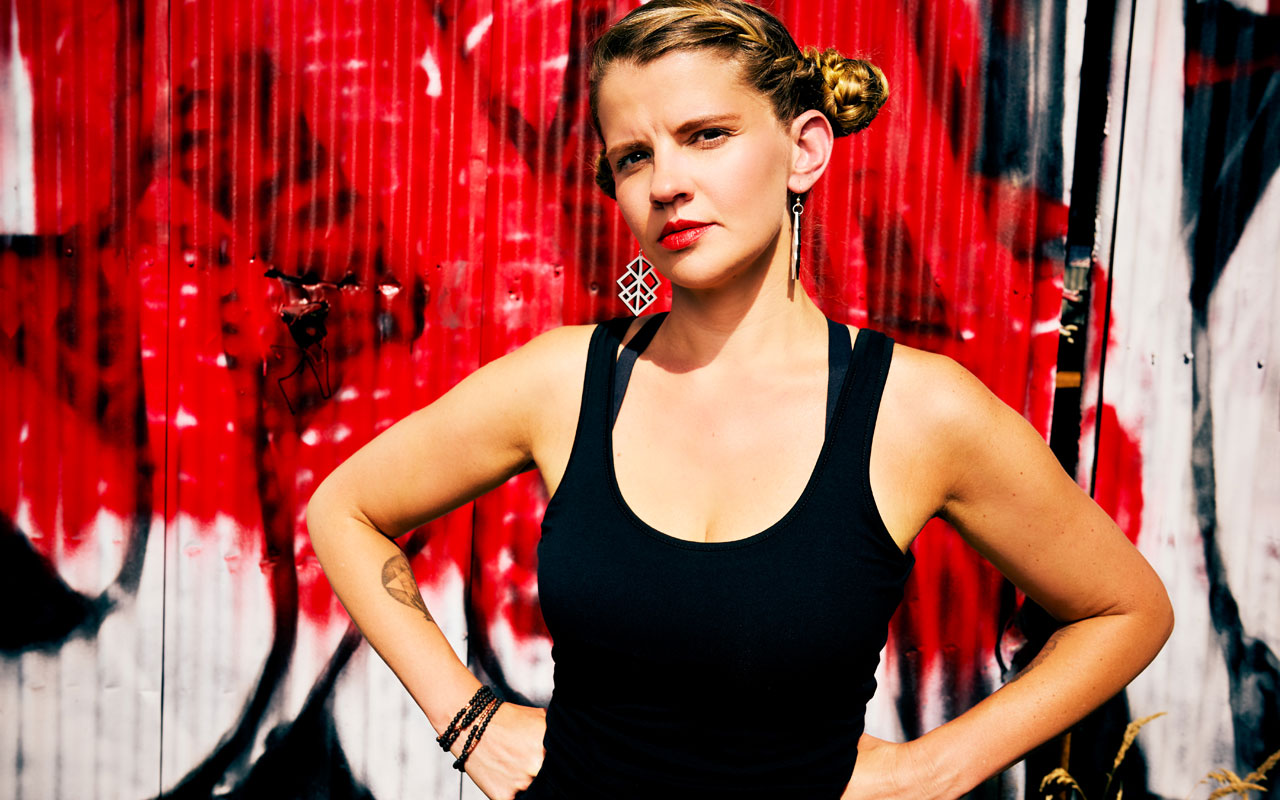
Beth Fleenor photo by Karen Moskowitz
Earshot Jazz is proud to share brief excerpts from the forthcoming book, After Jackson Street: Seattle Jazz in the Modern Era w.t. (History Press of Charleston, S.C.), by Seattle’s preeminent jazz writer, Paul de Barros, and Seattle-based music journalist Alexa Peters. Picking up where Jackson Street After Hours (Sasquatch Books, 1993) left off, the new book will feature fascinating interviews with the familiar artists and under-sung heroes who shape this vibrant jazz scene.
When it comes to fresh, progressive, and influential musicians in Seattle, clarinetist and singer Beth Fleenor is right up there. Fleenor, who was raised in Bristol, Tennessee, has been a dynamic presence in Seattle music since moving here to attend Cornish in 1998. Her primary projects include Crystal Beth, a solo pursuit involving the inventive layering of electronics, amplified clarinet, and novel vocalizations, and Workshop Ensemble, a blindfolded chamber music ensemble. Fleenor has also worked with some of the world’s most preeminent musical innovators, including musician, composer, and bandleader Wayne Horvitz, Talking Heads alum David Byrne, and Butch Morris, who pioneered Conduction, a unique improvisational method.
Below are edited excerpts about the extraordinary circumstances that surrounded Fleenor’s arrival in Seattle, from a 2023 interview with Fleenor at her home in Edmonds, WA.
I moved out here two weeks before my 18th birthday to go to Cornish. I came and stayed, and there have been many times since that I have gotten ready to leave. But, I’ve never had a calling internally to go someplace else in the same way that I felt pulled to come out here.
When I was 14, I was in the school band. I took a band trip to London and fell crazy in love with London. I met this woman who was a tour guide. We ended up becoming friends and pen pals after I left. She wrote to me and she said that Seattle was the closest thing in the United States that we have to London culturally and in weather. So, I got it in my noggin that I was going to go to Seattle.
Then, one day, I got in the backseat of a friend’s car. She had thrown a brochure in the back that had been mailed to her house to the wrong name. The brochure was for Cornish College of the Arts. I got in the car and looked down and saw ‘Seattle, Washington’ and ‘Arts.’ And I was just like, ‘Alright! There we have it. That sounds great.’
That’s some crazy magic. I had no idea who taught at Cornish. I knew nothing. But I did not apply anywhere else. I was just like, ‘Yep, this is it. This is what I’m supposed to do.’
I moved out here, took my Cornish entrance exams. Then, I went to Bumbershoot and I saw a show that Jovino Santos Neto and Chuck Deardorf and Hans Teuber were playing. I was like, ‘Woah, mind blown.’ A few days later, I went to school, and I was sitting on the couch, in the music building, and they walked by. I was like, ‘What? They’re here?’
At Cornish, Jim Knapp was my first jazz improvisation teacher. He’s also [the person] who gave me my first jazz gigs in Seattle. But then, when I met Denney Goodhew? Denney really changed everything.
The very first lesson I took with him, he had me play a bit. And then he asked me to stop playing and just breathe. And then he was like, “Well, how can you put anything out if you don’t take anything in?” That opened the curtain to a whole other realm.